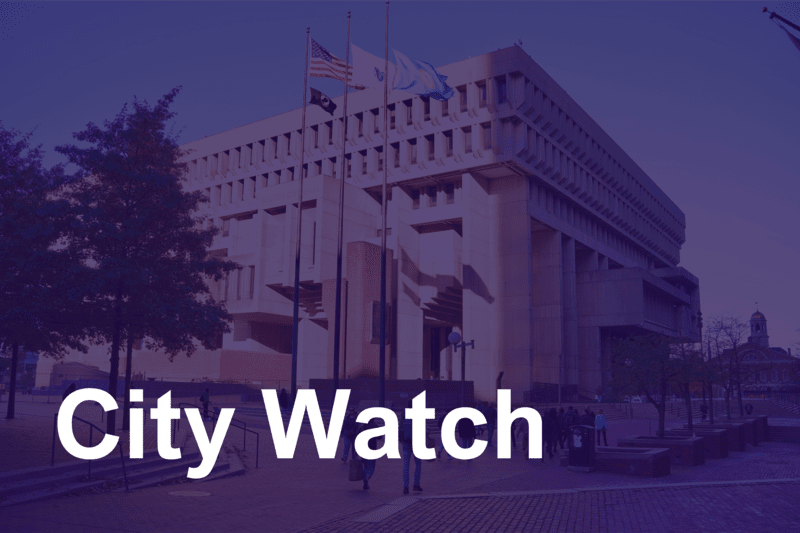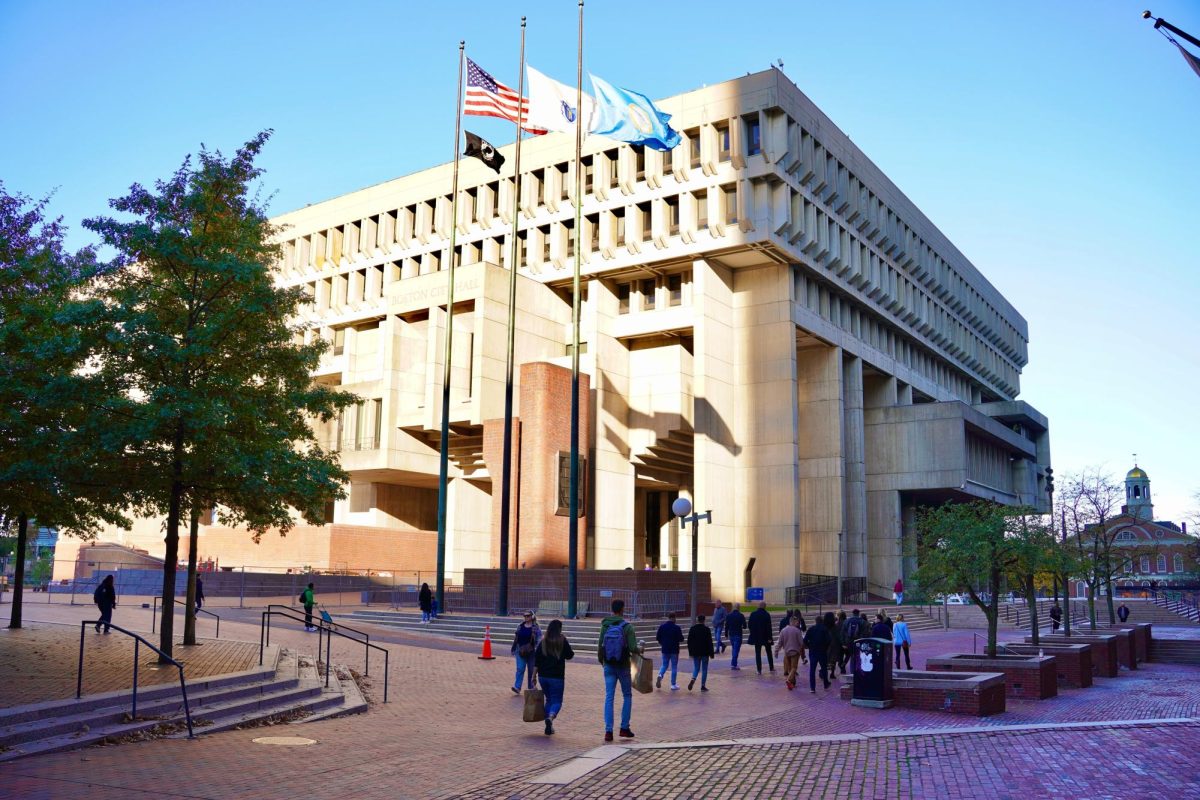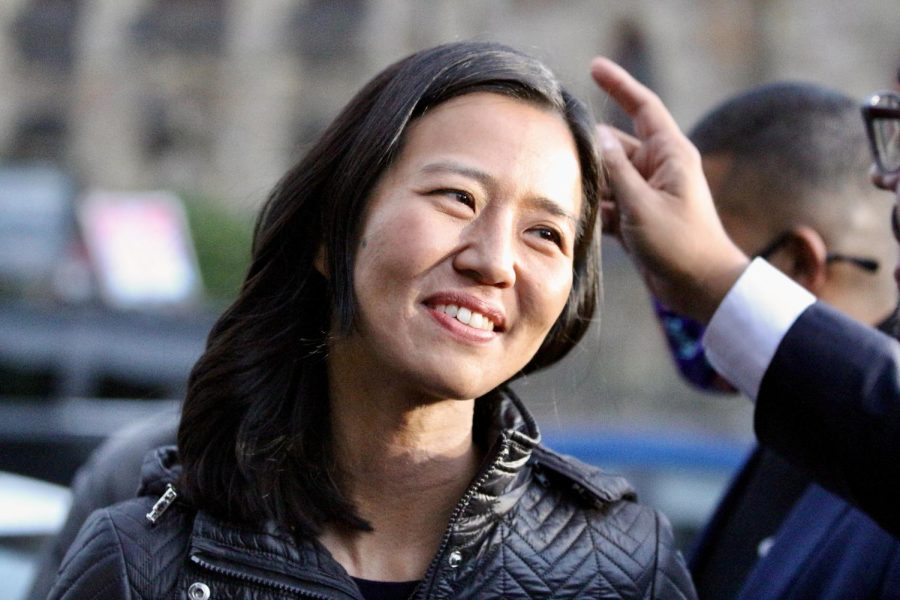Mayor Wu’s BPDA reform passes amid contentious discussion
It took two hours and twenty minutes for city council to discuss and pass Mayor Wu’s petition to restructure the Boston Planning and Development Agency (BPDA) at the March 27th weekly meeting, and beginning this June, the organization may reallocate funds from “urban renewal” projects to ones that encourage “affordability, equity and resiliency.” This would mark a large shift in how the city currently designs new building projects – a departure from a system which many councilors said “has had a harmful history through eminent domain and urban renewal.”
But not everyone on the council agreed with how the mayor has rolled out this policy, including her administration’s pushback on the addition of a civilian oversight board to the new BPDA.
The petition was submitted by Councilor Gabriela Coletta who led city councilors in discussions over how they could improve the restructuring plan. While she acknowledged that the policy wouldn’t please everyone, given the number of political interests involved in the discussions, she emphasized her pride in the council’s ability to pass key amendments from the initial proposal.
Among the proposal’s suggestions is the requirement of a financial audit of the restructured BPDA, presented annually to the mayor and city council, as well as annual accounting on how developers use mitigation funds. The department is also mandated to publish annual reports monitoring their land use. Additionally, in the new structure, the city council would play a larger role by holding an annual hearing to review the BPDA budget.
This measure falls somewhere between maintaining the current organizational structure and the solution proposed in a 2019 white paper, where the mayor suggested abolishing the BPDA altogether. The current proposal would keep existing employees in place, re-establishing new priorities in the focus and culture of the BPDA, “elevating planning with distinct teams focused on zoning compliance and comprehensive planning.” City of Boston Chief of Planning and current BPDA Director James Arthur Jamison is expected to stay on as head of the planning department.
Councilors Julia Mejia and Ed Flynn were among those who questioned the proposal. In particular, Mejia submitted an amendment asking for a civilian task force to oversee the new BPDA and resolve a concern among council about a lack of civilian oversight. This amendment was rejected outright by the council.
To further complicate the matter, near the end of the discussion, Mejia introduced a motion to withdraw Coletta’s motion to pass the matter altogether. Councilors expressed confusion on what they were voting on, and Council President Ruthzee Louijeune was seen frequently deliberating with City Clerk Alex Geourntas and the council attorney about how to handle the procedure. At the meeting, Geourntas was seen with a copy of Robert’s Rules of Order, which sets the rules of conduct for official meetings, to help facilitate the discussion.
“Procedurally, this has been interesting,” Louijeune said about the discussion.
Flynn shared his opinion in statements about how the council functions during his turn to speak on the proposal. He suggested that the city council is not prepared to handle controversial issues as an oversight power for the restructured BPDA.
“This body does not ask the difficult questions, and when we do ask the difficult questions, people get shut down and their voices are not heard,” Flynn said.“I don’t think we have the stomach or the guts to call people down here to challenge them or ask difficult questions.”
Tania Fernandes Anderson ultimately joined those opposed to Colletta’s proposal, due to its lack of civic engagement in the proposal and the lack of time to develop the reformed department.
“The community advisory board idea has not been explored at all,” Fernandes Anderson said “I spoke with the chair, Councilor Colletta about the idea. In the working session it was Councilor Colletta who let us know that the administration pushed back and so therefore there had to be some middle ground in order to be productive in some way with this amendment.”
She expressed that the city had a lot more work to do in order to create an equitable planning department, and that requires the community to be more involved in the process.
“We need our new planning function to be transparent and accountable. And after the fact, a retrospective annual report does not give us the tools we need as a city council to steer away from the planning of the past,” Fernandes Anderson added. “If I am asked for the one issue – the biggest stumbling block that feeds my reluctance to support the measure as amended – it is the lack of decision making power, the lack of planning board function within the proposed city structure this ordinance envisions.”
As Colletta predicted at the start of the session, not everyone was happy about the compromises within the amended proposal.
“I am extremely proud of where we are at with this,” began Colletta in her closing statements. “My approach from the beginning is to serve the city. It is my obligation to do everything I can to enact meaningful legislation. I am not interested in any sort of posturing. I am here to legislate to the best of my abilities. I think that through this process that has involved many individuals, that has involved community, that has involved our colleagues, I am still putting my name on this and I would like to see this move forward.”
Henry Santana explains why the hearing on a “Sundays For All” expansion was canceled
Councilors Flynn and Erin Murphy used a communication notice to question Councilor Henry Santana, chair of the education committee, on why he had canceled a hearing on expanding the Boston Public School’s “Sundays For All” program — which gives students at those institutions free access to museums on some Sundays – to charter and private schools in the city.
“I am hoping from this communication, because there was no other opportunity to speak on it, that we do hold a hearing and we don’t wait for the pilot program to end,” said Murphy.
Flynn also took a unity approach in his pitch for the expansion of the program.
“I don’t think any family should be limited and not attend a museum or cultural institution based on their income,” Flynn said. “A lot of families don’t have the luxury like we do at the city council to take their children to a museum.”
In January 2010, Governor Deval Patrick signed An Act Relative to the Achievement Gap, which required all charter schools to create recruitment and retention plans for high-need students. The bill additionally includes METCO students who are not a part of the current program. Private schools do not provide data to the state regarding their demographics, and the state does not currently offer vouchers for a private school education.
Santana provided answers and made it clear that his intention was not to shut the door on potential expansion.
“It feels like there has been some potential confusion about this,” said Santana.
He explained that the reason for canceling was to review the data of the first three weeks of the pilot program, and to wait for the program to end to better quantify how it went.
Louijeune was swift to curb discussion after Murphy, Flynn, and Santana all had the opportunity to speak. She made it clear that the communications from the mayor section of the meeting is not the time to bring up their concerns.
City Council commemorates Trans Day of Visibility, Cape Verdean Women’s Day, and B.U. Grad Workers
In three separate commemorations, the City Council brought up a number of community advocates within our city.
The first group included trans activists and advocates from organizations Bagly, Namesake, and the Theater Offensive, among others. This was the first recognition of Transgender Day of Visibility by the city council.
Gisele Byrd became the first Black and trans woman to run a major theater company when she became the executive director of the Theater Offensive.
“While Boston is the birthplace of the American Revolution, we are creating our own [revolution today],” said Byrd. “It starts with us and ends with us.”
This was followed by comments from Fernandes Anderson and members of the Cape Verdean Association of Boston. In 1981, a Cape Verdean nonprofit called the Women’s Organization of Cape Verde declared March 27 to be Cape Verdean Women’s Day.
Cape Verde’s history is integrated with the history of Boston. Massachusetts has the largest population of Cape Verdean Americans in the U.S., drawn here to work in the whaling industry in the late 18th to mid-19th centuries.
Women have always played a pivotal role in this community, and many female Cape Verdean leaders, including Fernandes Anderson and State Senator Liz Miranda were celebrated at Estella Restaurant after the meeting.
Lastly, the city council brought in the Boston University Graduate Student Union to express their support, and to apply pressure to Boston University to negotiate in good faith. The university and the graduate union have been negotiating on their first contract since June 2023.



